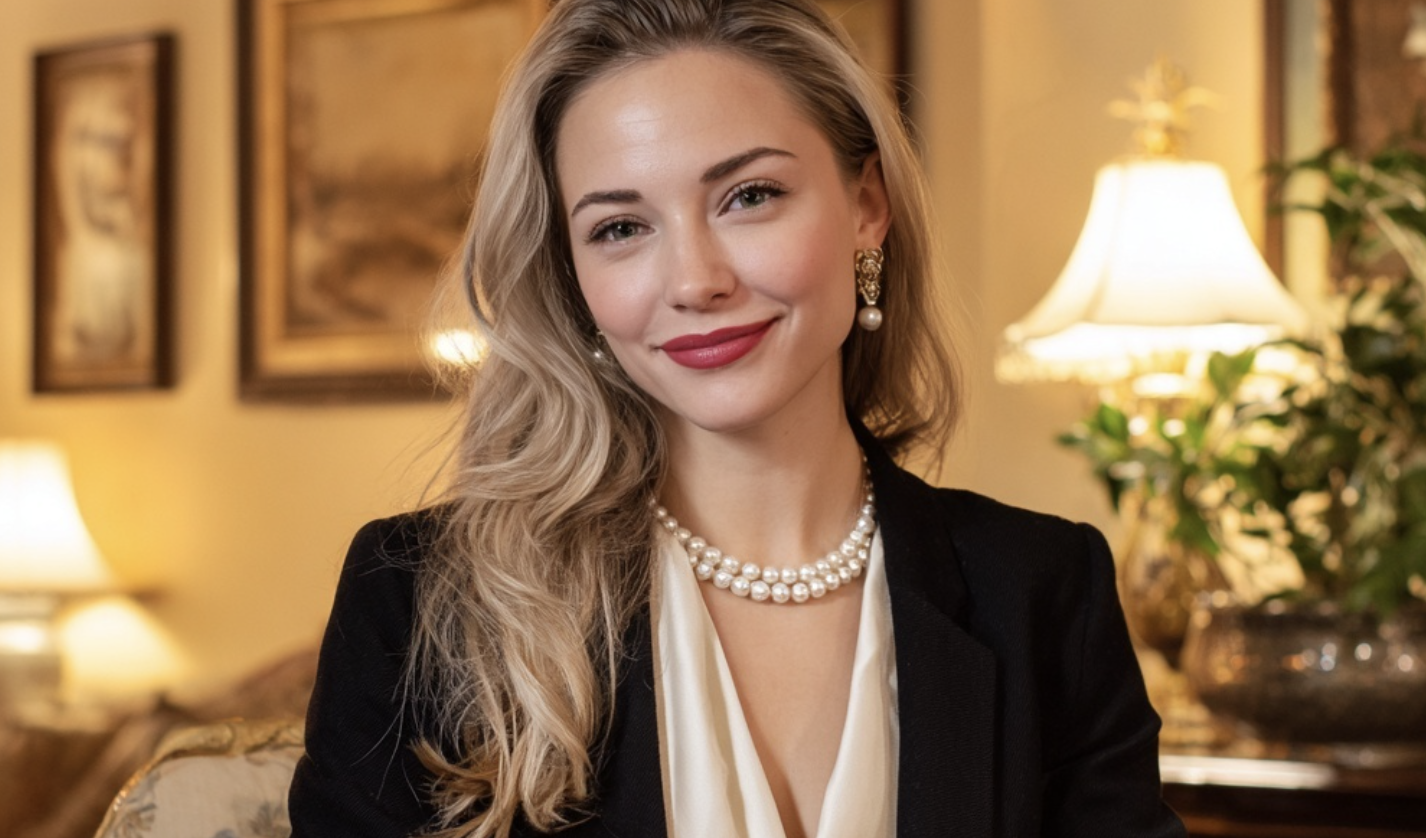— “The apartment obviously stays with me. The cars too,” my husband Kirill’s voice cut like a knife, bouncing off the polished walls of the lawyer’s office.
He wasn’t talking to me, but to my representative—a young guy in a perfect suit who, until then, had only been nodding silently.
“I’ll toss you a little money, fine. For a while,” Kirill threw me a look full of disdainful magnanimity.
“So you don’t starve to death while you look for… well, any kind of job.”
I looked at my hands resting on my knees. Steady, with short-trimmed nails, stained with soil no brush could ever wash out completely.
“You can take the dacha,” he continued his monologue. “Keep tinkering with your flowers out there. I don’t need it anyway.”
My lawyer gave a barely audible cough. I raised my eyes to him and gave the slightest nod. Time.
“My client does not agree to your terms,” the young man said evenly.
Kirill froze, then laughed—loud and unpleasant.
“Doesn’t agree? That’s new. And what, exactly, are you counting on?”
He turned to me, his eyes awash with genuine bewilderment mixed with contempt.
“What can you do without me at all?”
I stayed silent, letting him run on. He stood up and paced the office, radiating the self-assurance of a man who thinks he owns the world.
“For ten years you rode on my back. Your dresses, your trips, your stupid floristry courses—I paid for it all! You’re a complete zero, Anya. A penniless housewife who wouldn’t last a day without my money.”
He stopped in front of me, looming like a judge.
“So take the dacha and say thank you I’m not throwing you out on the street. But title to the land stays with me.”
I slowly lifted my head. Looked him straight in the eyes. No hatred, no resentment. I just looked.
“No, Kirill. I won’t take the dacha.”
His face fell.
“What do you mean, ‘won’t take it’?”
“It means I don’t need a handout—I need everything,” I smiled for the first time during the meeting. “I’m buying it from you. Your share. Along with the adjoining three hectares of land.”
For a few seconds a ringing silence hung in the office. Kirill stared at me as if I’d started speaking an unknown language. His lawyer stopped taking notes.
“Buying?” Kirill repeated, a hysterical note creeping into his voice. “You? With what money, may I ask? With the pin money I gave you?”
He turned to my lawyer for support.
“Is she in her right mind? Maybe she needs a doctor, not an attorney?”
Without changing expression, my representative placed a slim folder on the table.
“Here is a preliminary appraisal of the market value of the plot and buildings. And an account statement from my client confirming her full ability to pay.”
Kirill pushed the folder away with disgust without even looking inside. His gaze locked back on me.
“I get it. You’ve got someone. Some rich sugar daddy playing the noble patron.”
He smirked, but the smile came out crooked, mean.
“And you think he’ll keep footing your whims for long? Naive. Women like you are only needed while you’re young. Then they’ll toss you out just like—”
“Kirill,” my voice came out unexpectedly firm, cutting off his stream of filth. “Your fantasies are irrelevant. We’re discussing the division of property.”
“What property, for hell’s sake!” he exploded. “It’s all mine! I earned it! You only spent!”
He began pacing like a caged animal. His polish, his confidence were beginning to crack. I no longer saw a successful businessman, but a bewildered, angry man being deprived of his favorite toy.
“Remember what you were when we met?” He jabbed a finger at me. “A gray mouse from the biology department! I made a person out of you! I brought you up in the world!”
I stayed silent. I remembered. I remembered turning down graduate school because he “needed a wife, not a scientist.”
And how, five years ago, I accidentally ran into my classmate Dima at an exhibition.
He was already a budding entrepreneur and, seeing my sketches and herbariums, said, “Anya, this is a ready-made business! Your talent should be monetized, not hidden within four walls.”
He was the one who helped me register an LLC, with me as the silent founder and him as the general director.
“Your little flowers…” Kirill hissed. “I always hated that smell of soil in the house. You forever messing with your pots like some country bumpkin. It was pathetic.”
“You owe that ‘pathetic sight’ the fact that your office—and your partners’ homes—always had fresh, original arrangements,” my lawyer replied calmly. “Which, by the way, my client provided completely free of charge—as advertising.”
Kirill stumbled mid-word. He had clearly never thought about that. To him, my bouquets were just part of the decor, like the furniture.
He abruptly changed tactics. Came over to the table and sat. Looked at me almost pleadingly.
“Anya, let’s not do this. We’re not strangers, are we? So many years together… Can it really all be crossed out just like that?”
It was his signature manipulation—turn soft, insinuating, press on pity. It used to work flawlessly.
Not now.
“It’s already crossed out, Kirill,” I said. “And you’re the one who did it.”
I stood up.
“My lawyer will contact yours to finalize the details of the land purchase. As for the rest of the property—I propose we split everything evenly, as the law requires.”
His face twisted.
“Evenly? My assets? You won’t get a penny of my money! I’ll prove in court you have nothing to do with it!”
“Go prove it,” I shrugged and headed for the door.
At the threshold I turned back.
“Oh, and, Kirill. Tomorrow morning someone will come by to collect my things. And one more thing… I’m canceling all corporate floral-service contracts that were arranged through your firm.”
“Find yourself a new supplier. I’m afraid your office will soon lose its presentable look.”
I left without waiting for a reply, leaving him in the office to realize that the world where he’d been absolute master had started to collapse. And the cause of it was the “penniless housewife.”
Kirill burst out of the lawyer’s office, slamming the door so hard the glass rattled. Rage clouded his eyes. Buying the land! Canceling contracts! He gripped the steering wheel.
One thought hammered in his head: she couldn’t have. On her own—she couldn’t. It was that other man. An invisible “sugar daddy” pulling the strings. And she—a doll. And now the doll had decided she could live her own life.
He smacked the wheel. No. He’d show her what her flowers were worth without his protection, his money, his name.
The car jerked forward. He didn’t drive home. He drove where her real heart beat. To the dacha. To her realm he had always despised.
When he arrived, he shoved the gate open. The smell of flowers and damp earth hit his nose. The smell he hated most. The smell of her separate life he didn’t understand.
He didn’t go into the house. His target was the greenhouses—three huge, modern structures that had appeared a couple of years ago. He’d laughed then: “You’ll play at it and quit.” But she hadn’t quit.
The door of the first greenhouse wasn’t locked. Inside it was hot and humid. Rows of racks with hundreds of plants.
Some rare orchids, odd succulents, exotic ferns. He understood none of it. To him it was just a green mass. Useless and expensive.
He grabbed the first pot he saw and hurled it onto the concrete floor. The ceramic exploded with a deafening crash.
That snapped the last restraint. He smashed everything. He overturned racks, trampled rare flowers she ordered from abroad, tore the leaves off unique varieties she had bred for years.
He wasn’t destroying plants. He was destroying her world, her work, her secret pride.
When the first greenhouse was a ruin, he moved on to the second. That was where arrangements ready to ship to restaurants and hotels were stored.
He ripped them apart, mixing delicate petals with soil and shards.
His phone buzzed in his pocket. It was her. He declined the call. Then, smirking, he took several photos of the wreckage and sent them to her. Without a word. Just so she’d see. So she’d understand.
I was in my new temporary studio apartment when his message came. I opened the photos and my breath caught.
This wasn’t broken furniture or smashed dishes. This was murder. The murder of what I had been building for ten years.
Every plant in those photos was alive to me. I remembered planting each sprout, fighting off diseases, rejoicing at the first bloom.
I looked at the screen and the years of pain, resentment, humiliation—suddenly drained away. Only one thing remained. An icy, crystal-clear calm. The realization that the point of no return had been passed.
Enough. That’s all.
I no longer felt like a victim. I didn’t cry. I just knew what I had to do.
I dialed.
“Dima, hi. Emergency.”
“What happened, Anya?”
“He wrecked the greenhouses. Everything. To the ground.”
Silence for a beat.
“I’ll be there. Same address?”
“No, I’ll send a new one. And also… please call Sergei Ivanovich. Tell him Flora-Design is ready to sign an exclusive contract with his holding. On the terms he proposed. But there’s one small additional condition.”
“What is it?” Dima asked.
“Full and immediate severance of all ties with Kirill Sokolsky’s company. All of them. Including logistics and supplies.”
I hung up and looked out the window. The city was living its life. And so was I. My new life was starting right now. Amid the rubble of the old.
The next morning Kirill woke with a deep sense of satisfaction. He waited. He waited for a call full of tears and remorse. He waited for her to crawl to him, broken and destroyed, begging his forgiveness.
Instead, at ten o’clock, he got a call from Sergei Ivanovich, the owner of a construction holding, his key partner.
“Kirill, I won’t beat around the bush. We’re ending our cooperation.”
Kirill choked on his coffee.
“What do you mean? Sergei Ivanovich, we have a three-year contract! We have a joint project!”
“The contract is terminated unilaterally. My lawyers will find the grounds, don’t worry. The project is frozen,” the voice was cold as steel. “Good day.”
The line went dead before Kirill could say anything. Busy tone.
Before he even processed it, the phone rang again.
This time it was the head of the logistics company handling all his shipments. Same story. Contract terminated.
Over the course of a week his phone wouldn’t stop. One by one, those he considered his firmest pillars turned away.
His business—his empire, built over years—started to crumble like a house of cards. He tried calling, bargaining, but met only polite refusals.
By week’s end, driven mad, he understood. It was her. But how? How could that worthless housewife have done it?
He found her. Not in a rented studio, but in a panoramic restaurant downtown. She was sitting by the window with Dima. They were laughing, discussing something over a laptop.
He stormed up to their table, chair screeching.
“Was this you?”
I looked up at him. Calm, not surprised.
“What exactly, Kirill? Be specific.”
“Don’t play dumb!” he hissed, drawing the whole room’s attention. “My business! You’re destroying it!”
“Your business?” I smiled. “No. You destroyed it yourself. The day you smashed my greenhouses.”
He stared at me, uncomprehending.
“What do your stinking flowers have to do with anything?”
“Those ‘stinking flowers’ are the property of Flora-Design LLC. A company with an annual turnover of several million euros. We don’t just sell bouquets.
We do landscape branding. We create unique varieties for hotels, develop signature scents for restaurants. What you dismissed as my hobby was an integral part of the image and marketing strategy of your own partners.”
His face slowly blanched.
“You thought I gave you bouquets for free just because? It was marketing.
I was building a network of loyal clients right under your nose. You introduced me to the right people yourself, bragging about your ‘talented’ wife.”
Dima closed the laptop.
“When you destroyed the property of our key supplier and, effectively, derailed several major projects, Sergei Ivanovich deemed you an unreliable partner. Too impulsive.
He chose to keep working with us. The others followed suit. Business, nothing personal.”
Kirill sagged and dropped into a chair. He looked at me and no longer saw the gray mouse he’d picked up ten years earlier. He saw a stranger—strong, dangerous.
“But… from where… the money?” he whispered.
“I didn’t spend everything you gave me, Kirill. I invested. In myself. In my business. In what you called ‘a pathetic hobby.’”
I stood up. Dima stood too.
“You’ll receive a lawsuit tomorrow for property damage and lost profits. And yes, I’m still buying that plot from you. We need a site to build a new, larger greenhouse complex.”
We walked toward the exit, leaving him alone at the table. Crushed, destroyed. He lost everything not because I was strong, but because he believed I was weak.
Outside, Dima took my hand.
“Are you okay?”
“More than,” I said, drawing in the fresh evening air. “It’s only beginning.”
Epilogue. A year later.
I’m standing in the middle of a huge, light-filled space. All around—rows of perfect flowers, the air saturated with their subtle fragrance.
This is the main pavilion of our new agri-complex, built on the land I once bought from Kirill.
Flora-Design has become a market leader. We’ve opened branches in other cities and launched an online school. Sometimes I read about myself in business magazines and it feels like they’re writing about someone else.
Dima stands beside me. He sets a hand on my shoulder and I lean into him. Our business friendship long ago turned into something more.
A calm, grown-up feeling built on trust and a shared cause.
“Do you remember what you were thinking that day he wrecked everything?” he asks softly.
“I do. I thought he’d killed my past,” I answer. “Turns out, he just cleared space for the future.”
I’ve seen Kirill only once in the past year, by chance on the street. He’d gone downhill. Dull eyes, a cheap suit.
His company went bankrupt six months after our divorce. He tried to start something new, but his reputation ran ahead of him.
He saw me and quickly looked away. There was no hatred in his gaze. Only emptiness and incomprehension.
He never realized it wasn’t my revenge that ruined him, but his own blindness. He’d grown used to measuring people by money, power, status—and had forgotten how to see their essence.
He looked at a housewife, while beside him a serious entrepreneur was growing. He saw a “pathetic hobby,” and it was a carefully built empire.
I didn’t feel gloating when I looked at him. Only a light sadness. Because he had lost not just money.
He had lost the ability to be amazed. And to believe that the most valuable things are often hidden behind the most unassuming facade.
Dima and I walk out of the pavilion. Ahead lie the sunset and new plans. And I know for sure that my strength isn’t in million-euro turnovers.
It’s in the soil on my hands that will never wash off. In the love for a craft that was once only a dream. And in the ability to grow a beautiful garden on the ruins left by others.



